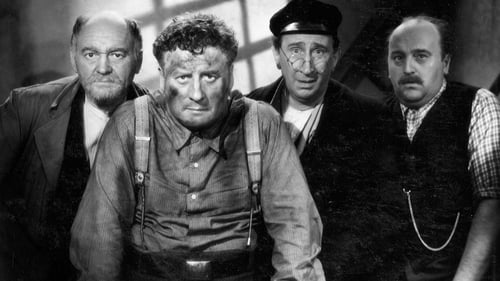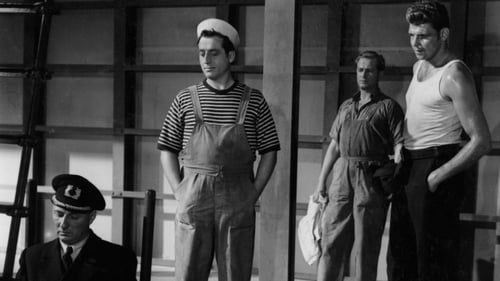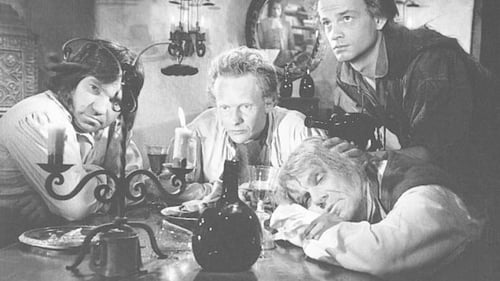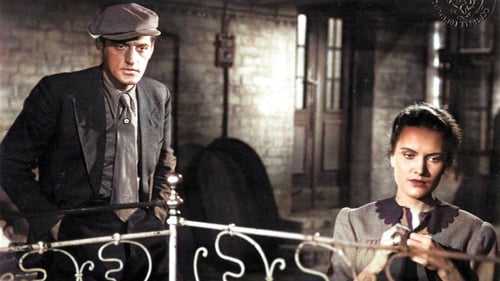Alfred Maack
출생 : 1882-04-05, Hamburg, Germany
사망 : 1961-02-14

porter

Heinrich „Hein“ Borchert, Schiffer

der Graue Köhler
This film is set in a medieval mill town in the Harz mountains. The greedy and brutal millman and his accomplices, the castle steward and the mayor, set fire to a forest mill that the farmers used for processing their grain. Without their mill, the farmers must now rely on the millman's services. When the farmhand Anna uncovers the millman’s crimes, he swiftly detains her and a young miller, Jörg. The forest spirits have a different plan, however, and they free the young couple with the charge to rebuild the ruined forest mill and turn things around for the villagers.

Kapitän der 'Fortuna'
On a barren and stormy island, fishing families eke out a meager existence on what they can catch during summer, and what washes ashore during winter. But little has been washing ashore of late, and their situation worsens. Elders recall how twenty years ago, when the lighthouse keeper’s beacon went dark, a cargo ship broke apart on the cliffs. It proved a bountiful accident for the fishermen. Today people on the island view the conscientious lighthouse keepers with evil hungry eyes...

August Bast
Germany in 1949: The residents of the Thuringian village Hunsdorf are still heavily influenced by archaic superstition and explain unusual events with preternatural powers. The same happens when pigs again and again disappear from different farmyards. The village residents firmly believe that witches are the reason for this mystery. Not even police detective Kühlemann who is sent to Hunsdorf is able to dissuade them from their superstition. Thus, the farmers think his investigation is aimless and they do not support him at all. With a lot of patience and well-made arguments he finally convinces little Peter that there are no witches. Next, Peter’s grandfather and teacher Marianne take Kühlemann’s side. With their support, the police detective eventually finds out the truth and is able to put a stop to the gang of crooks that had been stealing the pigs.

Großvater Timm
Several children find out what's the matter with a wreck offshore, which puts them into jeopardy.

Martens

Peer Frensen

Berlin 1952, seven years after WWII. Four women are looking for a good man and happiness in the divided city. Their destinies are loosely connected through one person: the West Berlin dandy and womanizer, Conny.

August

The story of Johann Friedrich Böttger, an apothecary’s apprentice and alchemist’s assistant. Fleeing from the Prussian King, he goes to Saxony, where King Frederick August the Strong takes him to a fortress and demands that he create gold. Böttger is equipped with everything he would need for the task, but he has known for a while that actual gold production is a myth and instead experiments with porcelain—white porcelain, as the Chinese are said to possess. In 1709, he finally succeeds in surprising the King with the "white gold," the first white porcelain made in Europe, he hopes for freedom.

The mechanic Behnke wants to join the Nazi party to secure a good living. However, after his Jewish neighbors have been taken away, he changes his views. Trying to remain "a non-political man," he withdraws from reality and becomes a Nazis laborer.

Bauer Mewes

Hans Albers plays returning war veteran Hans Richter who has trouble finding work. With nowhere else to turn, Richter gets involved with black market activities. This so disgusts Richter's son, blind ex-soldier Edwin (Paul Edwin Roth), that the boy literally disowns his father. Hans eventually mends his ways, but not before several other devastating setbacks.

Set during the rise of the Nazi regime, Elisabeth Maurer and Hans Wieland enjoy successful careers as actors in Berlin. Confident in her career, Elisabeth, who is Jewish, ignores the advice of a colleague to leave Germany in the face of increasing anti-Semitism. Believing that he can protect her if she becomes his wife, Hans convinces Elisabeth to marry him. In the following years, as Hans's career thrives, Elisabeth awaits the end of the Nazi terror which bars her from public life. When the situation worsens in 1938 with the Kristallnacht pogrom, Elisabeth decides to leave the country, but Hans, who still believes he can protect her, convinces her to stay with him.

Anton Schmidt
A wealthy man murders his wife, then marries a young woman who becomes suspicious of him.

A stuffy old civil servant is forced to retire during World War II, but when his son, a Navy submariner, is lost at sea and his city is heavily bombed by English bombers, his old patriotism is re-awakened and he determines to be of use to his country once again

Lagerverwalter
Director Brakke has good reason to be happy: he has just received the news that his son, Theo, won first place in the local boat race. To be sure, he had forbidden his son to take part in the competition, because the son's grades in school are substandard. In the end, Brakke sees no other way than to pull Theo from school and install him as an apprentice in his airplane manufacturing plant. Although Theo is received by the other 150 apprentices in a friendly fashion, he behaves in an arrogant and disrespectful tone towards them. He feels himself to be better than them, because his father is the director of the factory.

Adolf Boeckel

Matrose der Reederei Heitmann

Quandt

Landsturmmann Siedentopp

Kapitän Zanten

Claus Ummen - Landsturmmann











